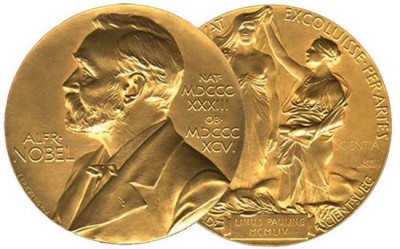Nobel Prizes: Why is there One in Economics? Rewarding Neoliberal Flawed Theories

The Nobel Prize Committee will announce the winners of this years Nobel prizes from October 8 to the 11th, and then on October 14 they will announce one more.
The prizes originated from a bequest in the will of Alfred Nobel. He was a Swede, one of eight children from a poor family, only four of whom survived. Dad was failing in business till he moved to St Petersburg where his luck changed and he started to manufacture machine tools and explosives. Alfred became a chemist and industrialist (b 1833) and he made his fortune with two things, arms manufacturing and his invention; dynamite, a vastly more powerful explosive than the world had ever known. Alfred built over 90 factories in Europe during the 1870’s and 80’s
Nobel never married, he loved and wrote literature, poems, plays, novels and prose that were mainly unpublished. He died in 1896 at his villa in San Remo Italy with a mixed legacy; he was successful and wealthy but he was known as the ‘merchant of death’. The explosives he perfected had made warfare immensely more deadly. Possibly to atone for this, he left the bulk of his fortune, an estimated $200 million at the time, in trust to establish the Nobel Prizes. He died in 1896, the first awards were presented in 1901.
Specifically, he endowed five; Chemistry, Literature, Peace, Physics, and Physiology (or Medicine) and today the recipients receive not only worldwide recognition of their accomplishment, but also about one million American dollars. Note; and this is the point of this essay, there was no prize for economics!
In 1968 the central bank of Sweden established the Sveriges Riksbank (that’s the name of the bank) Prize in Economic Sciences in Memory of Alfred Nobel. They provide the money for their new award created almost seven decades after the prizes began. That’s the ‘one more’ prize that will be announced Oct. 14.
One has to wonder why! Why is there a prize for economics? The Nobel family was not in favor of it. They thought it was unfairly exploiting the Nobel name. They knew Alfred didn’t create prizes for many things, there is not one for music, botany or geology for example, so why should economics get one? And why would the bank put up the money and why say it was for economic sciences?
Webster defines science as “knowledge covering general truths of the operation of general laws, esp. as obtained and tested through scientific method [and] concerned with the physical world.” Science has built our knowledge of the world with repeatable experiments that zero in on fundamental laws about how the world works. It’s by building this knowledge that we have taken control of diseases and mastered the physics and engineering that allowed us to fly to the moon.
The new prize seems to be an attempt to have economics appear to be a science and part of the natural world. It’s not. Economics is a man-made system and it’s based around money which too is a man-made invention. Neither are part of the natural world.
We know that people have studied ‘economics’ for a long time, even before the 1776 book by Adam Smith which is said to have been the first book on economics. But despite these centuries of study by literally thousands of people, the crash of 2008, probably the most significant economic event in history, happened without anyone seeing it coming. Economics proved useless. Weather forecasting has progressed more.
The Dutch journalist Joris Luyendijk has an article in the Guardian, ‘Don’t let the Nobel prize fool you. Economics is not a science (click here to read it). People may be at the mercy of the tides and forces of nature, but there is no reason that we need to be at the mercy of the markets. There is no natural reason for austerity, no reason for poverty, no natural reasons for market swings nor recessions.
One hint as to why a new economics prize was created comes from studying the list of those who have received one. A disproportionate number of the recipients (eight) have come from one University, the University of Chicago. That’s the home of neoliberalism and was the home of Milton Friedman (he got the 1976 prize). It was there that his ‘Chicago Boys’ trained, these were graduates who went to Chile and with neoliberalism in their veins and economically ruined the country.
Neoliberalism is the creed that swept the world beginning with the reigns of Margaret Thatcher and Ronald Reagan. It’s the theology that preaches that unregulated capitalism will provide the best economic results for everyone. It’s a faith not fact. As we have seen, what neoliberalism has done is concentrate wealth in the hands of the few. In 2003 Friedman came close to apologizing to the world for his flawed theories when he said “I’m not sure I would, as of today, push it as hard as I once did.”
The suggestion that economics is a neutral system and part of nature, an image that a so-called Nobel Prize in Economics implies, is simply wrong. The economic system is always controlled by people and weighted, in most parts of the world, to serve the few. In a few weeks, when the Nobel prizes are announced, ask yourself, why there is one in economics? And ask yourself also, has economics been of ‘…the greatest benefit to humankind’ the ideal that Alfred Nobel wanted his awards to serve.
*
Note to readers: please click the share buttons above or below. Forward this article to your email lists. Crosspost on your blog site, internet forums. etc.

